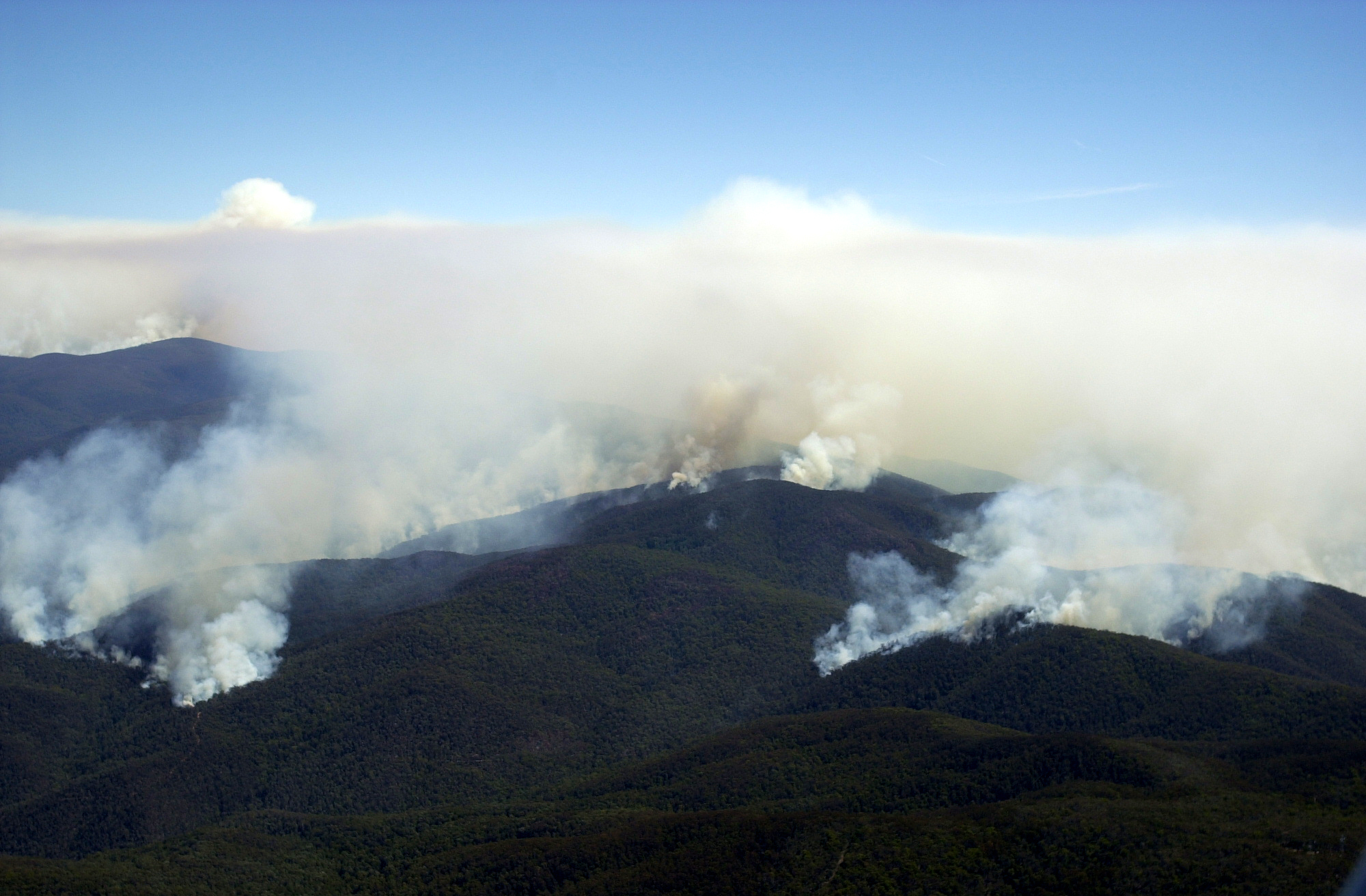[Posters]
[Science]
.
| General learning outcome: | GENERAL FIRE CONCEPTS: | Specific learning outcome: | The ruggedness of the landscape affects fire behaviour. | Topic: | The ways that fires can evolve over rugged terrain, and the suppression opportunities, or lack of opportunities, that result. |
Operational Awareness for Advanced Firefighters & Fire Behaviour Analysts
On rugged terrain we are now learning that fires on rugged terrain act as they would on undulating terrain until they have escalated past a certain scale, when the vertical air flows induced by the terrain act to make suppression difficult if not impossible. Such fires only decay when they leave the rugged terrain.
Incident objectives must focus on preventing fire escalation, and its subsequent coupling with the atmosphere.
When a fire becomes very large or plume-driven it is up to the Situation Unit to assess the safety issues that result and to review incident objectives and strategies.

Fire in a rugged landscape. [Lannon Harley]
.